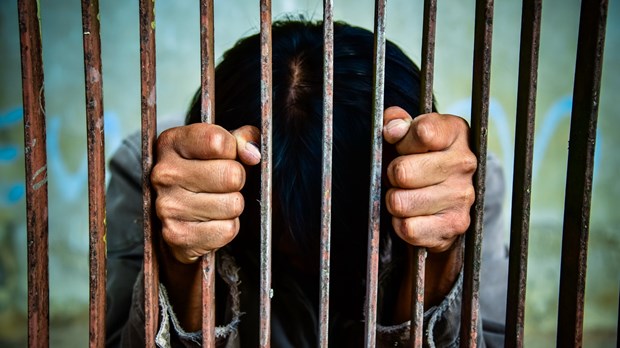Soul Survivor

On June 7, 2002, wounded missionary Gracia Burnham lay on a wet, grassy mountainside—waiting. Moments before, she'd been rescued from Muslim terrorists who'd held her hostage, along with her husband, Martin, for more than a year in the dense jungles of the southern Philippines. The militant group Abu Sayyaf kidnapped the couple in May 2001 at Dos Palmas island resort. Gracia had surprised Martin, a missionary pilot in the Philippines, with an overnight trip for their 18th wedding anniversary. Since the Burnhams first moved to the Philippines as missionaries in 1986, such a getaway was a rare luxury.
Martin and Gracia were among 20 people that Abu Sayyaf, a group known for making money by ransoming off hostages, kidnapped from the resort.
The Burnhams' three children—Jeff, now 16, Mindy, 13, and Zach, 12—immediately were transported from the Philippines, where they'd been staying with friends close to their home in the northern part of the country, to Martin's hometown of Rose Hill, Kansas (near Wichita), following their parents' kidnapping. Martin's parents, who also were missionaries in the Philippines and thankfully were on furlough in Rose Hill at the time, took the kids under their wing. Together they watched in horror as reports about Martin and Gracia's kidnapping made their way back to the States.
For 13 months, the Burnhams and a Filipina nurse remained in captivity (earlier, one male hostage was beheaded; others were released for ransom). While Gracia's family had arranged for $330,000 in ransom to be paid nine months into the ordeal, Abu Sayyaf refused to release the couple, claiming they wanted a total of $1 million. The Burnhams' agency, New Tribes Mission, has a policy forbidding ransom payments, fearing it would encourage future kidnappings.
Throughout Martin and Gracia's captivity, the hostages feared that their discovery by Filipino troops would result in a violent rescue attempt. They knew Abu Sayyaf would fight vigilantly to keep their prisoners. To avoid being spotted, Abu Sayyaf kept their captives on the move through the thick jungle terrain.
The hostages battled starvation, going as long as nine days at one point without a solid meal, and struggled with depression caused by their filthy living conditions outdoors. During their entire captivity, the hostages never had access to a toilet. River baths were sporadic and soap was hard to come by.
"Always I'd think, Things will get better tomorrow," Gracia says. "But they never did. It never got easier going to the bathroom on the jungle floor or being so filthy. Once, we went four weeks without a bath."
After more than a dozen failed attempts to rescue the remaining hostages, the Filipino military successfully zeroed in on the Abu Sayyaf, and gunfire erupted between the two camps on a rainy June afternoon. It was the 17th time Martin and Gracia had been caught in the middle of a rescue battle since they were kidnapped. Shots were fired so closely that the couple heard bullets whiz by. This time, the hostages were unable to escape uninjured.
Gracia, shot in her right thigh, rolled to the ground to appear dead. Martin—pierced three times in the chest—was fatally wounded, as was Ediborah Yap, the third remaining hostage. The members of Abu Sayyaf who weren't injured escaped into the jungle.
Minutes later, Gracia was located by Filipino troops who dragged her up a slippery hillside to await a Black Hawk rescue helicopter. I can't fall apart here, she told herself. I've made it this far. For so long, she'd waited to see her three kids again; she'd waited for a good night's sleep; she'd even waited to eat the hard-boiled eggs and baked sweet potato she'd dreamed of during captivity. Now, her wait for relief was about to be over. But her wait for closure to the horrific events she'd survived had just begun. So had the grieving for Martin.
It's been a year since Gracia, now 44, safely returned to Rose Hill to live with her kids. In the months following her release, Gracia worked with the FBI to identify Abu Sayyaf terrorists still at large. She moved into a new home that members of the Rose Hill community built for the Burnham family after following Martin and Gracia's story. And this spring, she released a book about her experiences as a hostage, In the Presence of My Enemies (Tyndale).
Gracia says she wrote the book to honor Martin, her source of strength during their ordeal. "I'm fortunate I didn't get my head chopped off in the jungle by irritating the Abu Sayyaf," Gracia says. "They believe women are to be seen and not heard, and I'm the furthest thing from that. I would get so angry with them for withholding food from us or lying to us. I had to learn to keep my thoughts to myself.
"But Martin always was kind and loving. It didn't matter if you were a fellow hostage or the Abu Sayyaf. He really lived out his faith."
Gracia says her lowest point spiritually occurred ten weeks into the captivity, after what seemed like countless days were spent either walking through the jungle or sitting in a hut trying to pass the time. "I'd given God the summer to get us out so we'd be released in time for our kids to start school," she says. "By week ten, I wished I'd never been born. God couldn't love me, because if he did, I wouldn't still be in the jungle. I was miserable. I cried all the time."
The Burnhams also battled resentment toward the Abu Sayyaf because of how the kidnappers operated. While the captors claimed to be devout Muslims, they twisted their religious laws for their personal gain, Gracia says. Several female hostages were forced to marry and sleep with the extremists who claimed Islamic law indicated they could take prisoners as wives. "I consider it rape," Gracia says. "Those woman certainly wouldn't have done that of their own free will."
The Burnhams experienced cruelty of a different kind. Martin often was handcuffed by day and chained to a tree by night because the Abu Sayyaf feared he'd try to escape. Suffering from frequent diarrhea, Gracia was forbidden at times to retreat into the woods and had to relieve herself in the same area where she slept. She soon learned her misery and bitterness were impossible to dismiss.
"You can't work your way out of it," Gracia says. "You can't make peace, joy, and contentment just happen. The Holy Spirit has to do it, and he started to do it for me even as I struggled with disbelief and hatred because of our situation."
The circumstances didn't change, but Gracia's perspective did, she says. "I'd go to the fire at our makeshift camp to get our food, because Martin was almost always chained to a tree. I'd watch at the fire as we'd get shortchanged. The Abu Sayyaf packed down their bowls with rice while giving us a much smaller portion. Earlier, I railed against the injustice. But somehow, I eventually was able to rejoice even in the small amount we received."
The contentment they experienced came through practice and prayer.
"There were days when we would say, 'Lord, could you just show us that you love us?' Then something extraordinary would happen. One of the guys from Abu Sayyaf would decide to share some extra food with us, or a beautiful metallic blue dragonfly would pay us a visit. We thought of those things as the Lord saying, 'I'm still here.'"
Today, Gracia says she's determined to remain faithful to Christ— even amidst emotional and spiritual confusion. "I'm not sure I even know what it means to grieve," she says. "I don't feel immobilized, but I do feel an overwhelming sense of sadness at times. I choose to believe God's good, even though I have a lot of questions.
"Sometimes I wonder, Why did Martin die when everyone was praying he wouldn't? Why does Scripture lead you to believe that if you pray a certain way, you'll get what you pray for? People all over the world were praying that we'd both get out alive, but we didn't."
Her questions made her realize it isn't always easy to comprehend God's nature.
"I used to have this concept of what God is like, and how life's supposed to be because of that. But in the jungle, I learned I don't know as much about God as I thought I did," she says. "I don't have him in a theological box anymore. What I do know is that God is God—and I'm not. The world's in a mess because of sin, not God. Some awful things may happen to me, but God does what is right. And he makes good out of bad situations."
Displaying the down-to-earth outlook of a survivor, Gracia still laughs in amazement that while Martin lost more than 40 pounds in the jungle because of the hostages' malnourishment, she came out of the ordeal the same 112-pound woman she always was. "My fat must have turned into muscle," she says with a smile. "Seriously, though, we were forced to carry Abu Sayyaf's heavy weapons everywhere we walked. After a year of that, my body was pure muscle."
Her ability to find humor in her circumstances hasn't negated the often emotionally raw state she unexpectedly finds herself in some days. "I was driving to town the other day and heard 'Up on the Roof' by James Taylor on the radio," Gracia says. "I started sobbing in the car. Martin sang that to me in the jungle when we needed a lift. It's those things that make me miss him. I'll walk through the mall and see a couple holding hands. I think, Well, I used to be that way. I know that good feeling.
"Other times, I miss Martin because I have too much to do. If he were here, he could fix the garage door. Sometimes I miss him when I can't get the kids to bed at night and think, If Martin were here, all it would take is one word."
The last time the Burnham children saw their father alive was two weeks before Martin and Gracia were kidnapped. Martin had flown to the States for a meeting with New Tribes Mission. When he returned to the Philippines, he and Gracia went directly to Dos Palmas Resort for their anniversary trip.
"The kids had a great good-bye with their dad before Martin left for the States," Gracia says. "Martin said that on his way to the airport, he started crying because he already missed the kids, even though he'd just left them behind an hour before. It was unusual for him to get so emotional, because as a pilot, he traveled all the time. He said he thought maybe something was going to happen to him and he wasn't going to see the kids again. It was the strangest thing, because at that point, he had no idea what was in store for us."
It's been difficult, Gracia says, to understand her children's grief.
"I've told the kids, 'It's different for you. In the jungle, I had the opportunity to say good-bye to your dad all the time because we didn't know if we'd make it out alive. But your dad was snatched from you. And I don't know what you're feeling, except for loss.'"
Acting as sole caretaker for her kids has been a challenge, but Gracia says there's no other place she'd rather be than home. She supports the family financially with the monthly assistance of a few longtime missionary backers, along with the advance she was paid for her book. She's also selective about speaking engagements and refrained from traveling to promote her book.
"I need to be here when my kids come home from school or when they're sick," she says. "I don't need to be off somewhere trying to influence the world when I ought to take care of them.
"I'd still like to do what I can to make a difference in this world for Jesus, but I think I can do that from Rose Hill. I want to be a blessing in this community. Because of what happened to me, people are willing to listen. I've had opportunities to speak at Jeff's high school. I've talked to people at the mall, at the airport. I'm always trying to make sure the Lord is on my lips."
A spirit of gratitude is one of the changes Gracia's children have most noticed about their mom.
"The kids laugh at me," Gracia says, "because I'm always thanking God for everything—even the well-paved roads that take us from our house to the school, or the convenience of a drive-thru. For so long in the jungle, disappointment was the norm for me. So now, life and everything about it seem good."
Together with her family again, life for Gracia feels good in many regards—but not yet normal.
In a different way, Gracia still finds herself waiting—not for her tragic ordeal to end, but for a new sense of normalcy to begin. So far, her days have been filled with phone calls and visits from church friends and neighbors. Some volunteer on Monday afternoons to clean her house. One elderly couple recently spent the day organizing Gracia's basement office. Her new schedule couldn't be more different from the life she used to live overseas, ministering to her neighbors, homeschooling her kids, and helping Martin with his pilot job as he delivered mail, supplies, and encouragement to other missionaries in the Philippines while also transporting sick or injured patients to medical facilities. Gracia worked from the ground as his radio operator.
"Here it seems like there are no normal days yet," Gracia says. "I think that's what I miss the most about my life in the Philippines. You cook supper, you sit around, you go to bed. I loved that regular day. Life isn't like that for us yet because we're still trying to figure it out."
In the meantime, Gracia's establishing The Martin & Gracia Burnham Foundation. She hopes to raise money to support missionaries in remote locations throughout the world by training pilots and purchasing airplanes—a fitting way to honor her husband's legacy.
"Martin was an awesome pilot; that was his niche," Gracia says. "And Martin had a dream to do what he did best so others would be drawn to Christ.
"Because of this, my kids have seen how one person can make a difference. And they know the importance of that. Recently, Jeff said to me, 'Remember the times when we couldn't even afford to go to the market in the Philippines, but we knew we were making a difference? Now we have this wonderful house. We never have to worry where our next meal is coming from. But are we making a difference?' I told him, 'Well, let's trust the Lord to help us do that.'
"So that's what I'm trying to do. Martin wanted others to know about Jesus and God's plan of salvation. And he was doing what he did best to make that happen. So I created this foundation because Martin had a dream—and the dream didn't have to die with him."
For more information about The Martin & Gracia Burnham Foundation, visit www.graciaburnham.org.
Copyright 2003 by the author or Christianity Today/Today's Christian Woman magazine.
Click here for reprint information on Today's Christian Woman.
Read more articles that highlight writing by Christian women at ChristianityToday.com/Women
 Read These Next
Read These Next

 Doing the Best I CanLessons I learned from former prostitutes
Doing the Best I CanLessons I learned from former prostitutes
 5 Things I Want My Kids to Know About SexI'm not excited to talk about it, but here's my plan.
5 Things I Want My Kids to Know About SexI'm not excited to talk about it, but here's my plan.








 Homepage
Homepage
